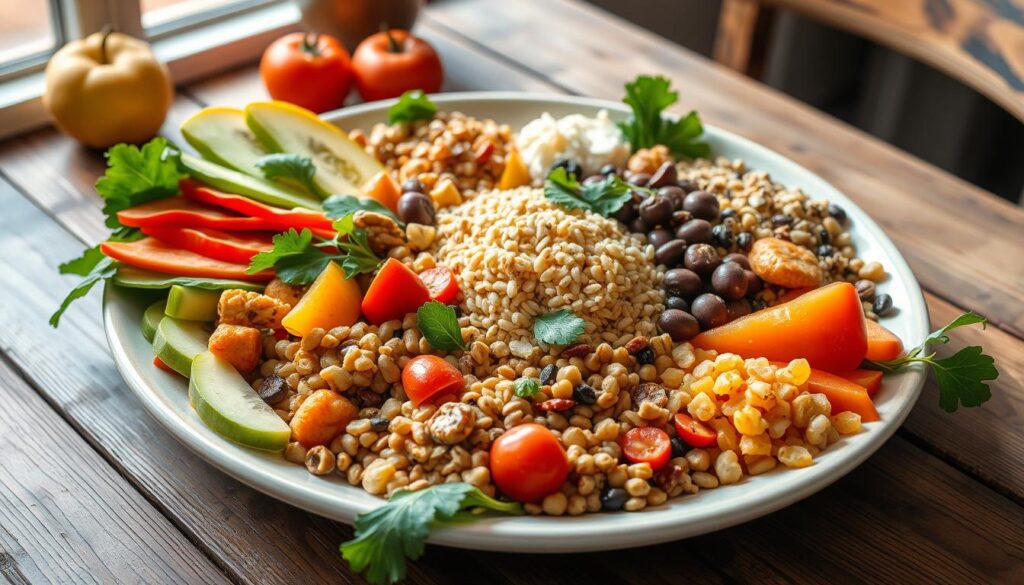The development of exceptional vegan wraps requires a sophisticated understanding of ingredient composition, preparation techniques, and structural engineering. Through careful attention to these elements, it becomes possible to create professional-quality wraps that maintain integrity while delivering optimal nutrition and satisfaction.
Understanding Structural Principles
The foundation of superior wrap creation lies in understanding the mechanical principles that govern wrap integrity. The interaction between various components, their moisture content, and their structural properties determines both immediate quality and stability over time. This knowledge enables the creation of wraps that maintain excellence from preparation through consumption.
Component Selection and Preparation
The selection of appropriate components significantly impacts wrap success. The wrap itself must provide both flexibility and strength while maintaining appropriate flavor and nutritional profiles. Artisanal wraps, when properly selected, offer superior results compared to mass-market alternatives.
Internal components require equally careful consideration. Proteins, whether legume-based or derived from alternative sources, must provide both satisfaction and structural stability. Vegetables warrant careful preparation to manage moisture content while maintaining freshness and nutritional value.
Professional Assembly Methods
The execution of superior wraps demands attention to precise technique. The arrangement of components significantly impacts both structural integrity and consumption experience. Professional assembly methods ensure consistent results while maintaining efficiency.
Moisture Management Protocol
Moisture control proves crucial for wrap success. Strategic ingredient preparation and thoughtful component arrangement prevent moisture migration while maintaining appropriate texture. The implementation of moisture barriers, when properly executed, significantly enhances wrap stability.
Temperature Considerations
Temperature management impacts both quality and safety. Hot components require careful handling to prevent condensation issues, while cold elements demand proper temperature maintenance throughout service. Understanding temperature dynamics enables successful execution across various service scenarios.
Advanced Preparation Strategies
Professional wrap production benefits from sophisticated preparation strategies:
Mise en Place Development: Careful preparation and organization of components facilitates efficient assembly while maintaining quality standards.
Component Integration: Strategic combination of elements ensures both structural integrity and flavor balance.
Quality Control: Regular evaluation of components and finished products maintains consistent excellence.
Transport Engineering
The development of effective transport solutions requires attention to several factors:
Temperature Maintenance: Proper insulation and packaging materials prevent temperature degradation during transport.
Structural Support: Appropriate packaging provides protection while preventing compression damage.
Moisture Control: Strategic wrapping techniques prevent moisture migration during transport.
Nutritional Optimization
Professional wrap development requires careful attention to nutritional composition:
Protein Integration: Strategic incorporation of varied protein sources ensures nutritional adequacy while maintaining textural standards.
Nutrient Balance: Thoughtful combination of components provides comprehensive nutrition while supporting satisfaction.
Portion Control: Precise measurement ensures consistent nutritional delivery while maintaining proper wrap structure.
Service Considerations
Several factors impact successful service execution:
Temperature Management: Proper holding temperatures maintain both safety and quality standards.
Presentation Protocols: Strategic cutting and arrangement enhance visual appeal while maintaining structural integrity.
Quality Monitoring: Regular evaluation ensures maintained standards throughout service periods.
Seasonal Adaptation Strategies
Professional wrap programs require seasonal adjustment:
Component Selection: Seasonal ingredients provide optimal quality while managing costs effectively.
Preparation Methods: Adapted techniques accommodate seasonal variation in ingredient characteristics.
Temperature Adjustment: Modified procedures address seasonal temperature challenges.
Looking Forward
The evolution of professional wrap preparation continues as new ingredients and techniques emerge. Maintaining awareness of developments in plant-based proteins and preparation methods enables continuous program improvement and refinement.
Through careful attention to both fundamental principles and advanced techniques, the creation of exceptional vegan wraps becomes consistently achievable. These sophisticated offerings provide both satisfaction and nutrition while maintaining professional standards of excellence.
Share your professional wrap experiences with #ProfessionalVegan #PlantBasedDining #CulinaryExcellence.






